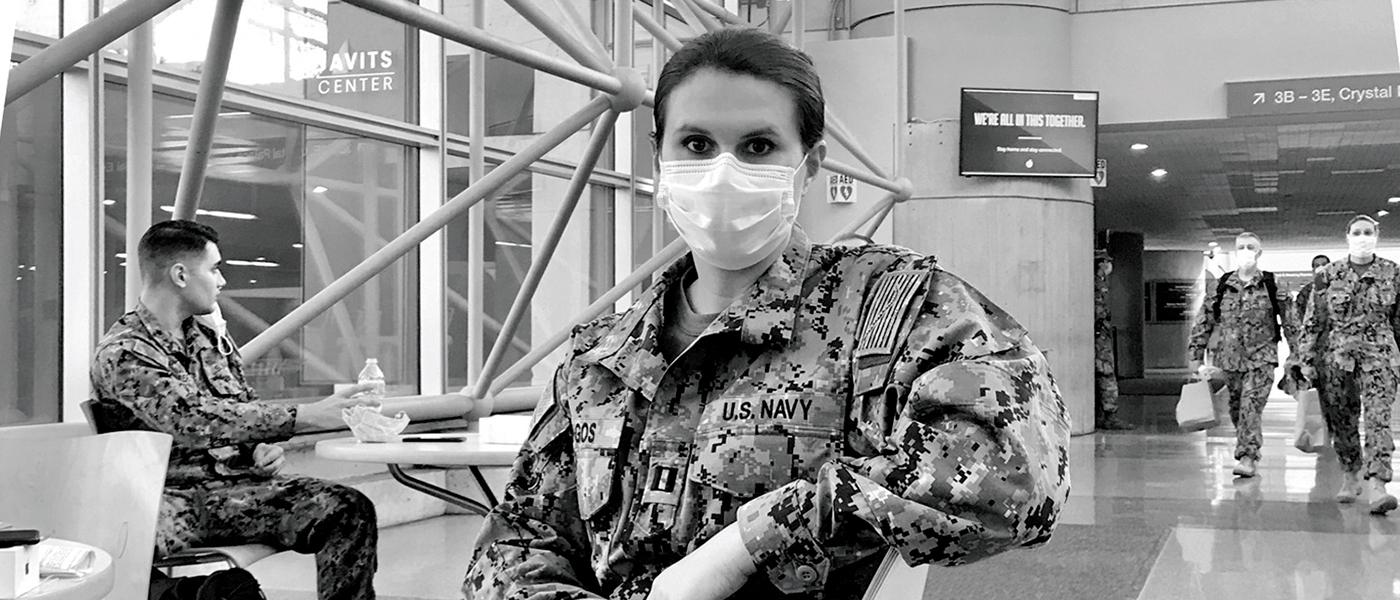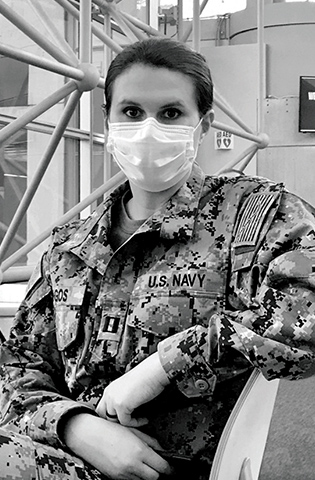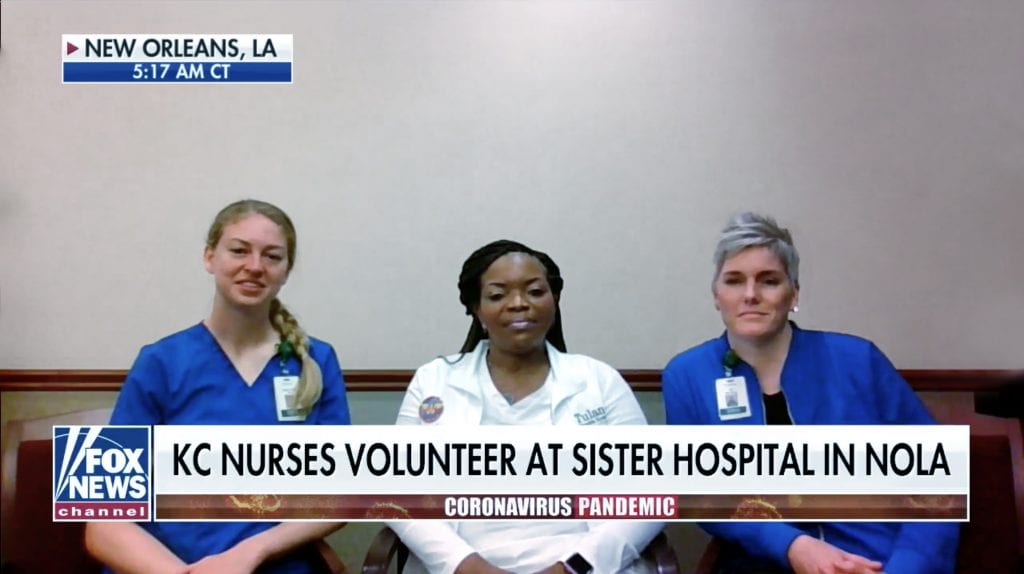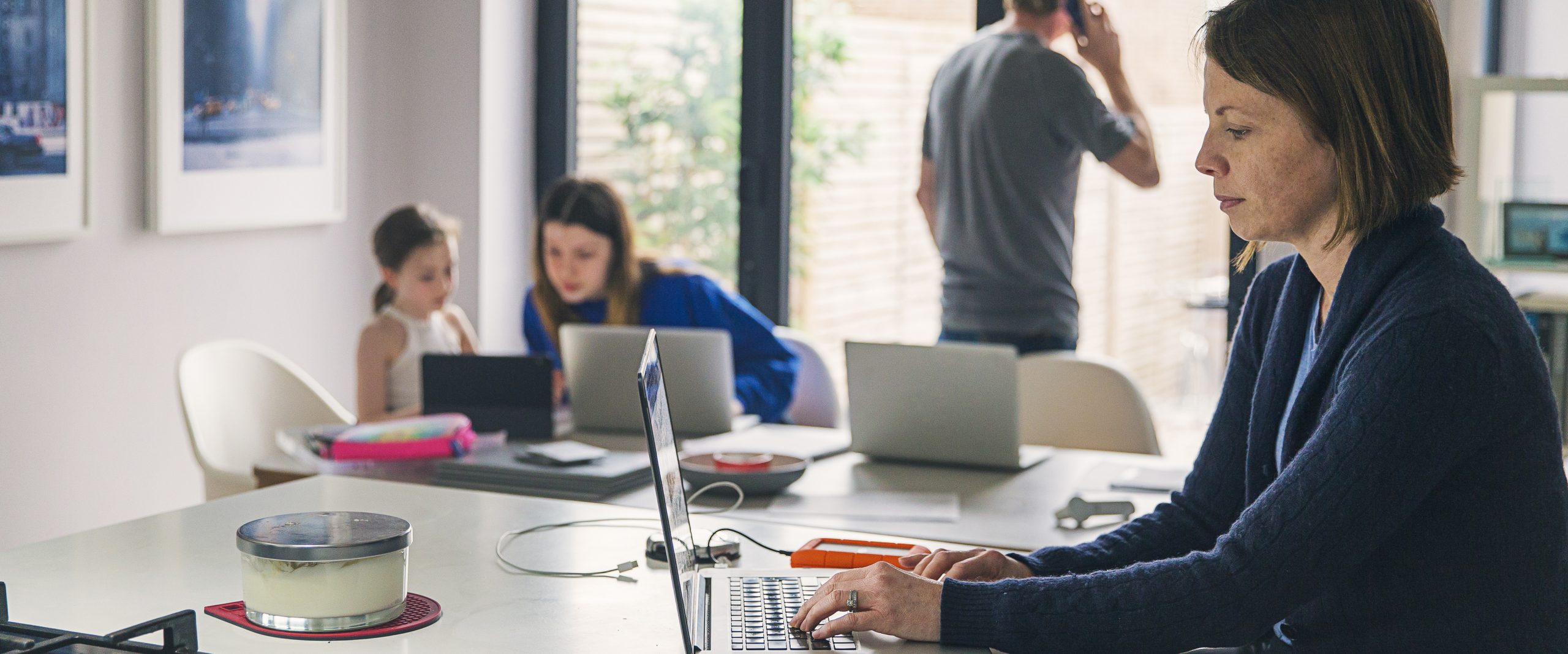Geography becomes secondary when colleagues respond to calls for help.


When COVID-19 began to spread, the hospitals that were both short-staffed and overwhelmed with coronavirus patients needed reinforcements. Could HCA Healthcare, with our vast network of medical personnel and resources, lend a hand to help inside and outside our family of hospitals? The answer was—and remains—yes.
HCA Healthcare nurses traveled far from home to serve in major COVID-19 zones such as New York and New Orleans. Elsewhere, a different sort of help was being offered. St. David’s Round Rock Medical Center near Austin, Texas, was one of many facilities to set up a colleague grocery so front-line workers could buy basics that were increasingly hard to find at local stores.
That’s what the “care” in HCA Healthcare is all about.
It’s our people, of course, who define the enterprise with their resilience, dedication and generosity. “It’s wonderful to see the innovation and collaboration of our teams,” says Tami Taylor, chief nursing officer at St. David’s Round Rock Medical Center. “Our Food and Nutrition Services director, Beth Bowles, is taking care of our staff while we work to care for our community. Once again, they’re showing all of us, in big ways, what it means to care like family.”
HCA Healthcare has been amazing throughout this process. They’ve been fully supportive and nothing but helpful during a stressful time . . . It’s been an unforgettable experience.— Maria Spingos, director of nursing for behavioral health, West Florida Hospital, Pensacola, Fla., and Navy Reservist
A roster full of veterans
Military personnel are accustomed to serving away from home. More than 28,000 of our quarter-million-plus HCA Healthcare colleagues are veterans, reservists or active duty personnel. One of them is Maria Spingos (pictured above), director of nursing for behavioral health at West Florida Hospital in Pensacola, Fla.
A nurse for 12 years and with HCA Healthcare since 2018, Maria is also a credentialed psychiatric nurse with the Navy Reserve. In early April, duty called: Like many other military personnel, she was told to mobilize to New York to help treat COVID-19 patients. As of this writing, she’s still there, working at the Javits Center in Manhattan, where a temporary care facility has been built to handle hospital overflow; Maria serves on what’s called the prone team. “On a regular schedule, we turn patients in their beds to the prone position [chest down] to help improve lung function,” she says. “This allows the nurses to continue care without interruption of position.”
Initially, Maria was told to anticipate serving for 60 to 90 days. When she received her orders, they read 270 days—roughly nine months—but she doesn’t expect to be in New York that long. As different as they are, Maria says her Navy service has helped prepare her for work in a civilian setting. “In order to make rank, you have to work for it through education and collateral duties. They also offer other courses that prepare you to treat patients on the battlefield.” She says HCA Healthcare has been “amazing” throughout the process. “They’ve been fully supportive and nothing but helpful during a stressful time . . . The COVID-19 crisis has been eye-opening and clearly demonstrates how quickly diseases can spread. It’s been an unforgettable experience.”


Answering the call
When Louisiana Gov. John Bel Edwards asked for nurses from areas less affected by COVID-19 to supplement medical personnel stretched thin in New Orleans, 200 nurses from HCA Healthcare facilities in the Kansas City area volunteered to help at affiliate Tulane Medical Center.
Monica Howard, an ICU nurse at Menorah Medical Center in Overland Park, Kan., agreed to go wherever she was needed most, so it was off to New Orleans. “These patients were the sickest I’ve taken care of in my career. You really don’t know how bad it is until you’re on the front line in a hot zone.”
Another colleague who volunteered to make the trip south is nurse Cassie Champagne of Overland Park Regional Medical Center. She says she was inspired to become a nurse by her mother, who worked with other nurses for months after 9/11, identifying bodies at ground zero. “I never imagined I’d be called on to help with anything like COVID-19,” Cassie says.
Cabrina Ridley, a nurse at Tulane Medical Center, says it meant so much seeing the out-of-state reinforcements arrive. “It showed us that we are being supported and everybody is in this together. There’s no need to feel exhausted anymore because help is actually here.”
It’s wonderful to see the innovation and collaboration of our teams. Once again they’re showing all of us, in big ways, what it means to care like family.— Tami Taylor, chief nursing officer, St. David's Round Rock Medical Center, Round Rock, Texas


